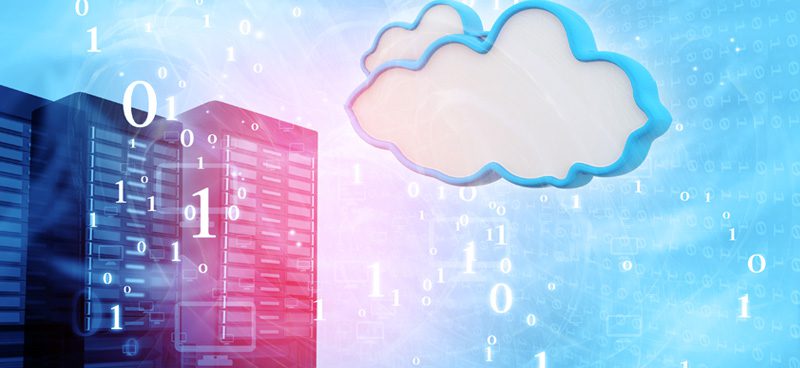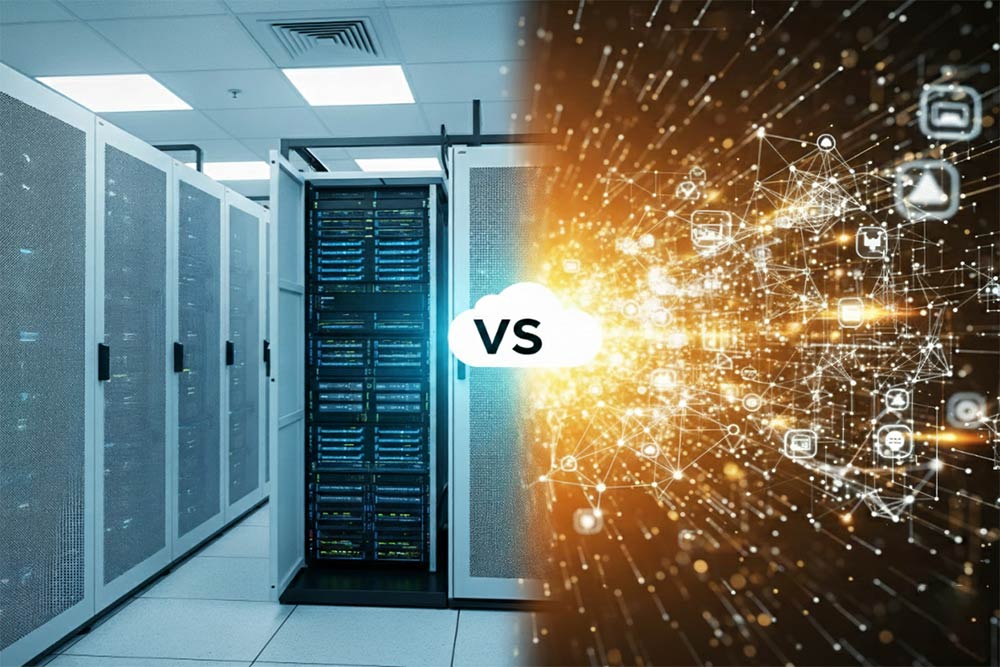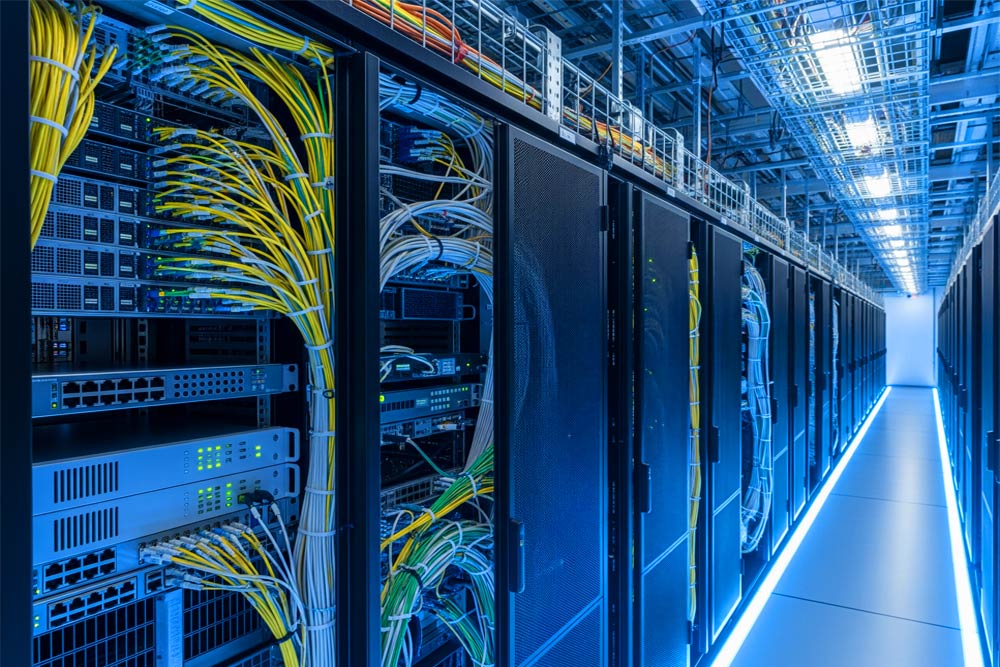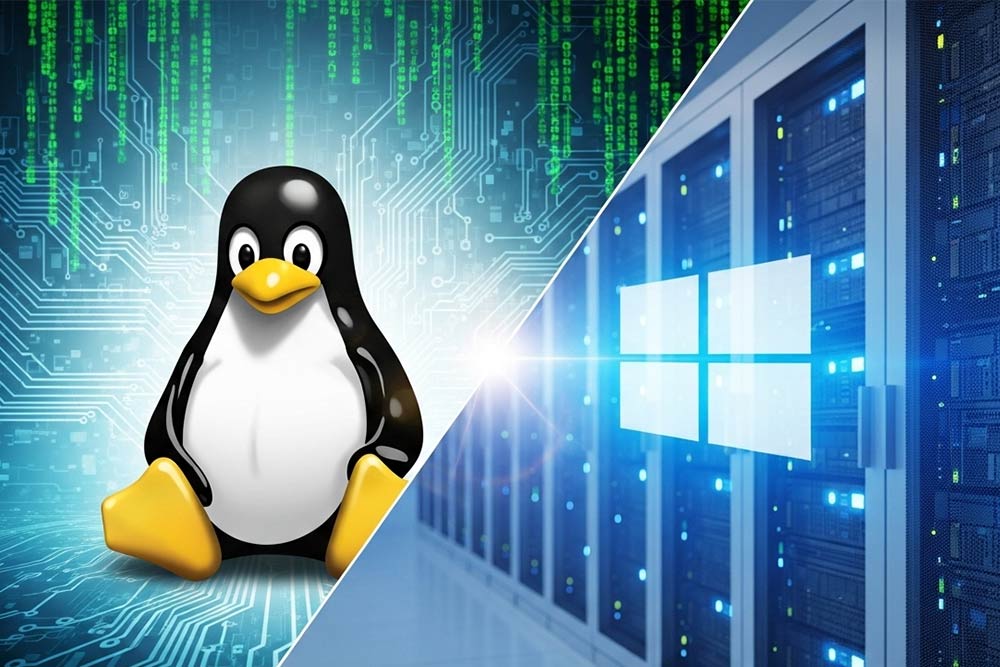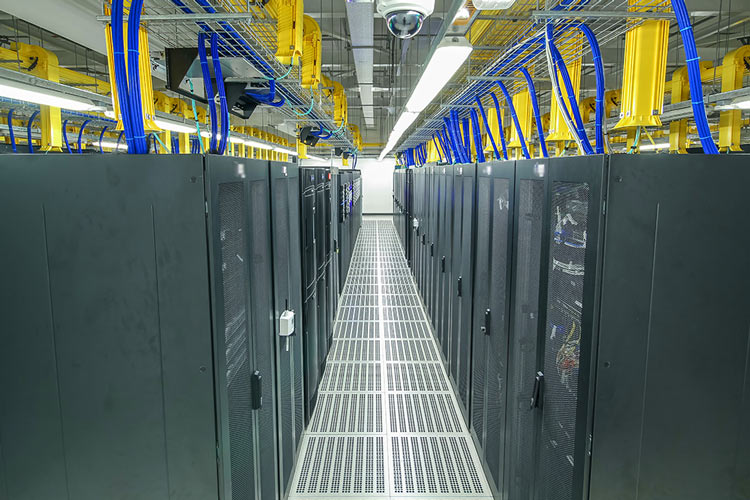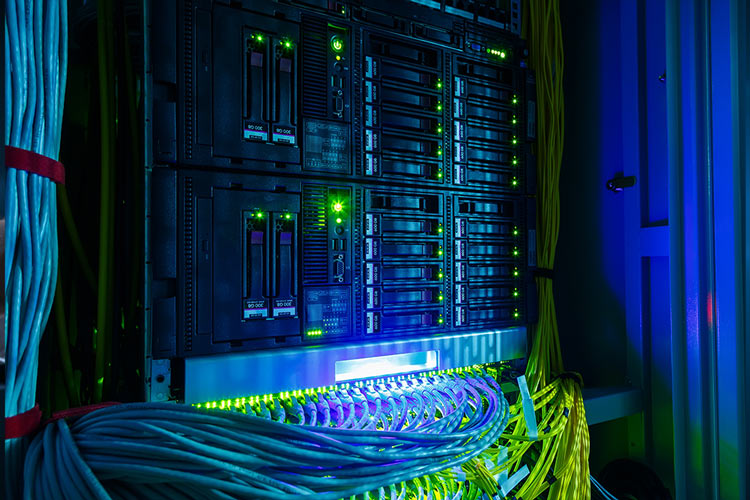The difference between using the cloud to host your services versus using an in-house, dedicated server is essentially the difference between leasing and buying; between using an in-house IT team or a professional outside team; and between hands-on control versus shared, but more affordable, services. There are pros and cons to each type of information service that should be analyzed before the choice to use one – or even both – is made. The right choice can mean more security, better disaster recovery, less expense, and scalable resources.
What are cloud servers?
Using the cloud means using a data center or service that is outside the physical control of your company. Cloud services can be in the same state as your business, but they may also be in different parts of the country or even the world. Cloud servers are virtual servers that can give IT departments more range to connect and store data at a lower cost.
The data center or other company hosting your IT on the cloud does the heavy lifting – they install the hardware and software, create the networks, manage security and backups, use the latest technologies, and review your business plans – all for a regular fee, such as a monthly charge.
The big difference, as compared to dedicated servers, is that cloud services are generally shared with other tenants. This sharing helps to control the costs and lets companies scale their needs – but it does come with some security concerns – though most data centers are prepared to address those security concerns.
What is a dedicated server?
A dedicated server is a physical device that the company usually buys or rents. It is placed at one of the company sites. Dedicated servers work well for companies that have just one office and predictable needs or that have special security needs, such as HIPAA compliance requirements.
In some cases, a hybrid solution, such as using a combined dedicated server for high-security needs and a cloud for growth opportunities, works best.
Pros and cons
There are advantages and disadvantages to each type of hosting service.
Cloud advantages:
o Less expensive. With the cloud, there is no need to buy any hardware. Instead, the company rents the hardware from the cloud service provider. This means there are no upfront costs, though the advantage decreases with time. Companies thinking that buying may be a better long-term investment should consider, though, that information system technology rapidly changes. By the time the long-term savings kick in, the technology may be obsolete or need a serious upgrade.
o Easier to scale. Most companies hope they will grow or expand. With the cloud, the service provider can quickly and easily add more storage, memory, and other features. With dedicated servers, growth almost always means new hardware expenses. With cloud services, the company only pays for what it uses.
o Reliable updates. Data centers work to keep current with the latest technologies and the best and most recent security measures. Business IT departments may keep up with some new methods, but their main duty is to help the business get new customers and retain old ones. They often just have the time to stay current.
Dedicated server advantages:
o Full control. The IT department gets to make all the hardware, software, and business decisions. There is no need to rely on or comply with the data center’s requirements.
o More security. Security can be better with a dedicated server because company’s applications and data are not being shared with other tenants. Sensitive information or information that must meet government compliance requirements can be better controlled in a dedicated server environment.
o Some cost savings. Dedicated servers can be cheaper, in some respects, because they are not always using the latest state-of-the-art services, and because communications do not have to travel as far. Less bandwidth may be used.
Most of the cloud advantages are dedicated server disadvantages, and vice-versa. Dedicated servers make sense if the company IT department knows what it is doing. That means knowing how to install, configure, and integrate hardware and software; how to set up and enforce security measures, and protocols; and how to handle emergencies.
A couple of other advantages of the cloud environment are that it is easier to automate scaling through APIs and other techniques. Additionally, Android and iOS are compatible with cloud servers.
Get educated on the differences between cloud computing and dedicated servers
As cloud services mature, they are becoming more and more viable for companies of all sizes. New strategies and methods are constantly being developed to address some of the advantages of dedicated servers, including security and control. To discuss whether your IT department should consider moving to the cloud, please call Volico at 888-865-4261. We work with all-sized companies across most industry sectors to develop storage and networking solutions that will meet your business’s needs and goals.
Ready to See How Volico Data Center Can Help You?
Got questions? Want to talk specifics? That’s what we’re here for.
Have one of our friendly experts contact you to begin the conversation. Discover how Volico can help you with your Dedicated Hosting needs.
• Call: 888 865 4261
• Chat with a member of our team to discuss which solution best fits your needs.

